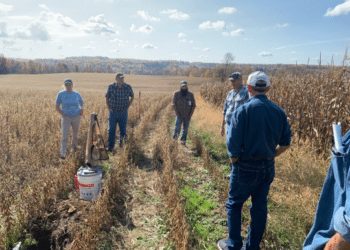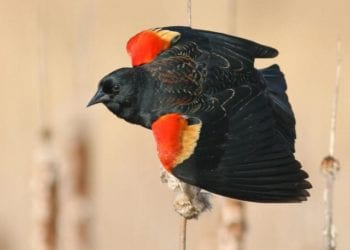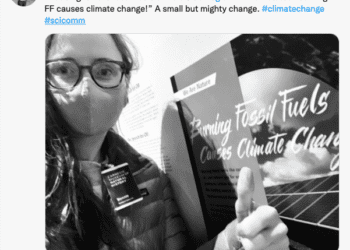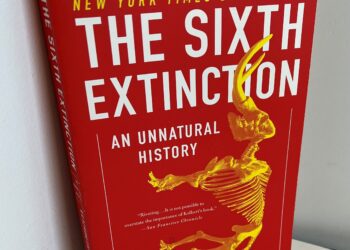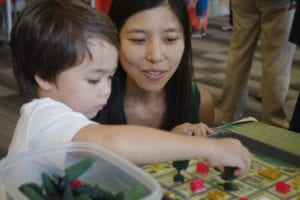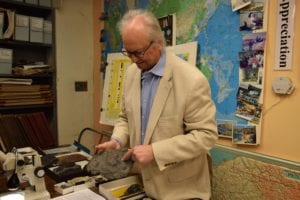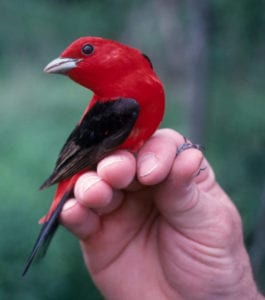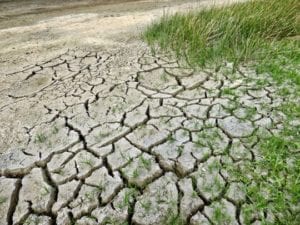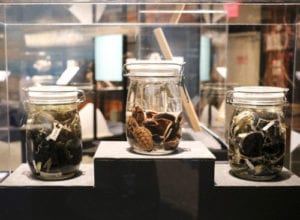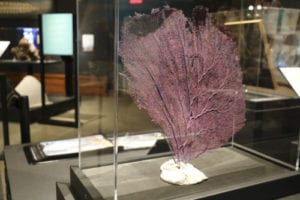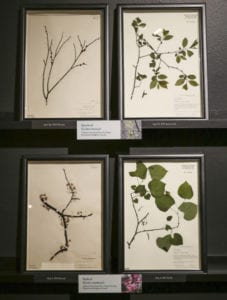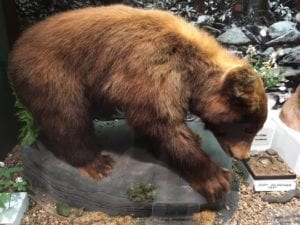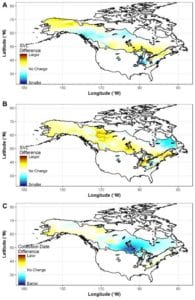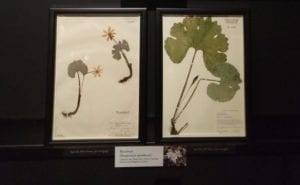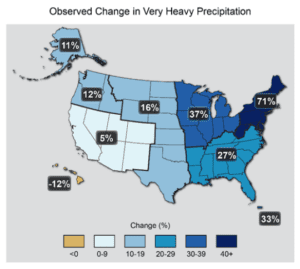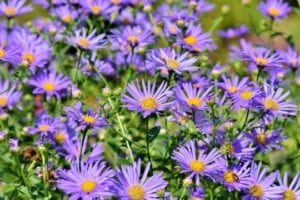The Climate and Rural Systems Partnership
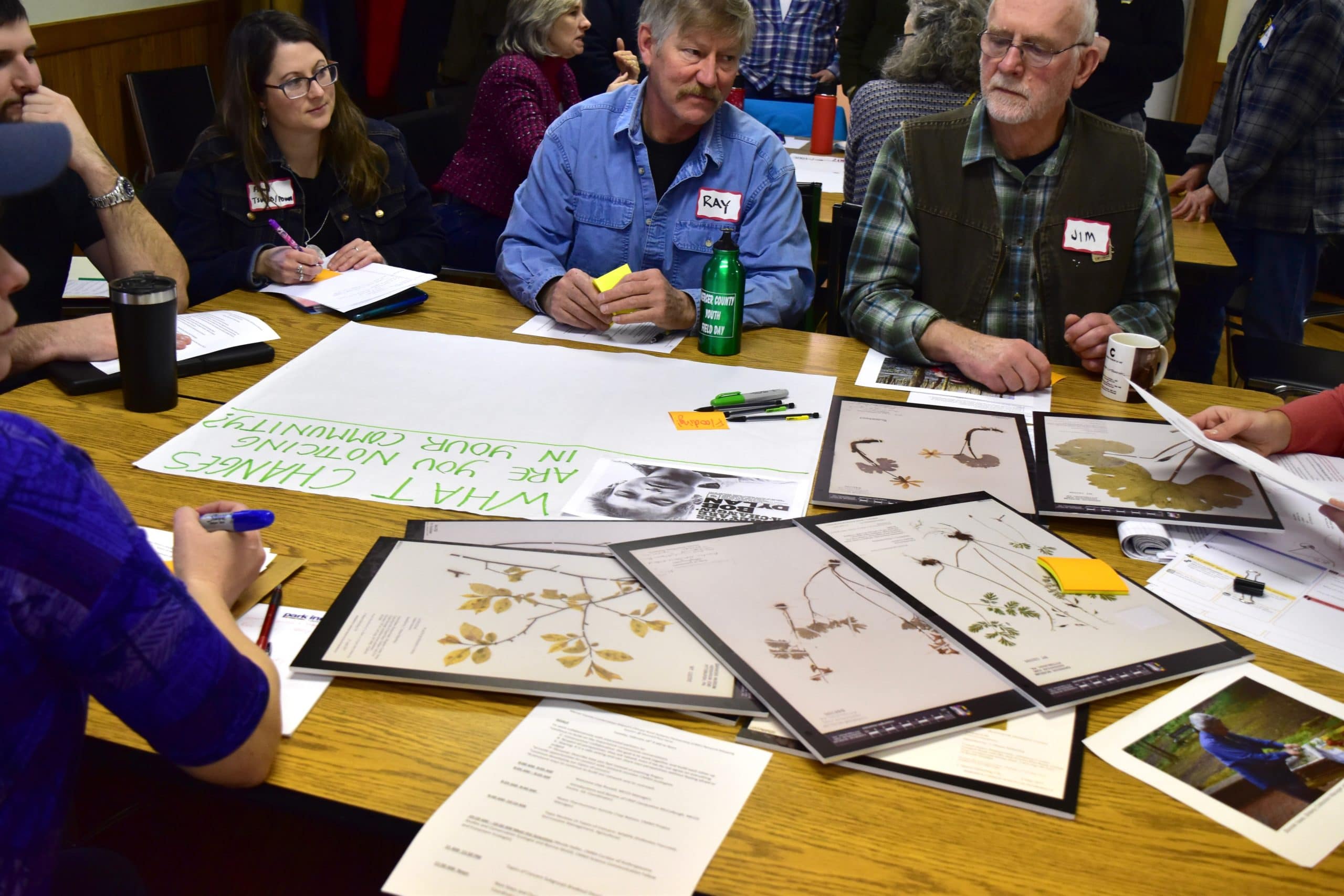
The Climate and Rural Systems Partnership
Talking about human-caused climate change can be difficult, especially in communities where it feels politicized or socially unsafe. However, starting the conversation is an essential step toward taking the scaled actions we need to tackle this challenge and build sustainable, resilient futures, both in our region and the world.
The Climate and Rural Systems Partnership (CRSP, pronounced “crisp”) is a collaborative learning-research project that aims to get people talking about climate change in Western Pennsylvania so that, ultimately, we can do something about it. CRSP operates at the intersection of three ideas: 1) museum resources are valuable for understanding environmental change, 2) museums are underserving rural audiences, and 3) complex socio-scientific environmental change topics are deeply connected to social decision-making in rural communities. Over the past four years, the Carnegie Museum of Natural History, together with the University of Pittsburgh, has engaged community partners across rural Western Pennsylvania in a research practice partnership that supports professional networking, reflection and learning about human-caused climate change. Through this partnership we seek to improve methodologies and practices for practitioners to effectively address climate change issues with their audiences, including the museum’s work with its audiences.
The project is centered at two community hubs: Powdermill Nature Reserve in the Laurel Highlands and Mercer County Conservation District north of Pittsburgh. Community partners across these hubs have included formal and informal educators, conservation practitioners, watershed specialists, land managers, farmers, environmental advocates, recreationists, industry leaders, and scientists. Together, we have explored strategies to overcome social and political barriers to talking about human-caused climate change and encourage conversation about the climate impacts and solutions, both present and future, here in rural Western Pennsylvania.
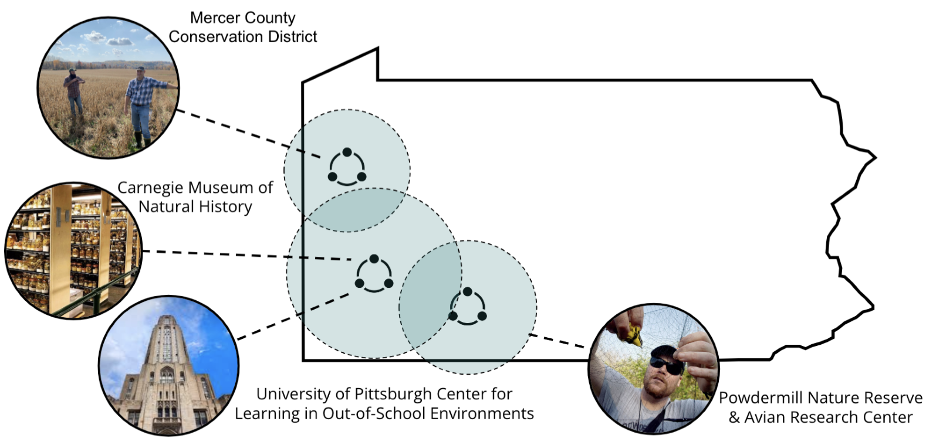
CRSP partners: Mercer County Conservation District, Carnegie Museum of Natural History, University of Pittsburgh Center for Learning in Out-of-School Environments, and Powdermill Nature Reserve & Avian Research Center
A cross-disciplinary team leads this learning research project, with scientists and educators at the Carnegie Museum of Natural History providing expertise in ecological and climate science, science communication, and facilitation techniques, researchers from the University of Pittsburgh Center for Learning in Out-of-School Environments (UPCLOSE) providing expertise in learning research and practitioners at Powdermill Nature Reserve and the Mercer County Conservation District providing expertise in environmental education, conservation, and engagement with rural communities. Our collective work supports socially safe, science-based discussions about human-caused climate change and is building regional capacity for information exchange across organizations.
CRSP Resource Library
The resources found in this library were co-produced by CRSP network partners and CMNH scientists and educators to spark climate change conversations with public rural audiences. Co-production is a process through which the creation of new knowledge or resources remains relevant to the needs and experiences of the community members it is meant to support. CRSP network partners were involved in all stages of creation, from defining a shared goal for the resource to developing and refining content.
Please use any of the resources you see, and don’t hesitate to contact us if you have a question!
Climate Conversations Starter Guide for the Laurel Highlands
When it comes to climate conversations, where do you begin? This guide is meant to help you get conversations started with eight different “Have you noticed…?” questions related to local climate change solutions and impacts based on the latest scientific evidence. The booklet also includes some general tips for talking about climate, six climate actions you can take, and a section on climate science basics. Use this guide as an information resource to help you feel more comfortable and confident with climate change topics. You can also pull information from this guide to incorporate into programming, materials, or other engagements.
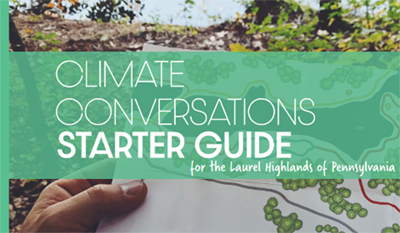
The Road to Farm Resilience to Weather Extremes
These tri-fold pamphlets were co-produced by farmers and ag professionals at the Shenango River Valley CRSP hub (Shenango Climate and Rural Environmental Studies Team or S-CREST) and Bonnie McGill, a CRSP scientist and illustrator. During 2021, the group explored local climate data and worked to write the pamphlet text for their intended audience, conventional farmers in the region growing corn and soybeans. The group wanted to make a resource that could help them have conversations with such farmers about how certain conservation practices will help farmers build resilience in their operations to the current and worsening impacts of climate change. Many of these practices also build soil carbon, which mitigates climate change.
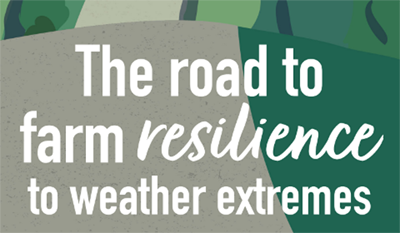
Signs of Climate Change in Migratory Songbirds of Pennsylvania
This infographic looks to migratory songbirds as teachers, showing us how climate change is here and now rather than somewhere else in the future. These birds, and the Powdermill Avian Research Center scientists who study them, show us how climate change is speeding up their arrival from the south and the timing of their nesting dates – a pace they might not be able to keep up with. You can use this infographic to share the story of migratory songbirds, something everyone in Western Pennsylvania can notice and care about, and start a conversation about what we can do to help them in the face of a changing climate.
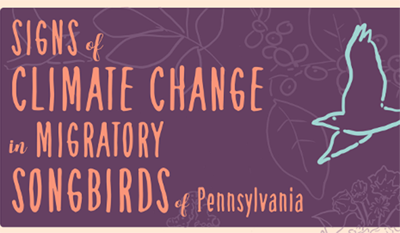
Brook Trout in a Warming World
Trout fishing is deeply rooted in the cultural heritage of Pennsylvania’s Laurel Highlands, yet many stewards have been noticing how climate change is jeopardizing its future. This story navigates climate change from the perspective of the Brook Trout, holding a hopeful call to action front and center and highlighting several organizations in the Laurel Highlands working to address climate change, protect Brook Trout, and pass on the legacy of trout fishing to future generations. You can use this storymap to spark climate conversations with various Brook Trout stakeholders, from anglers to students to conservation groups, that inspire stewardship on behalf of both the Brook Trout and ourselves.
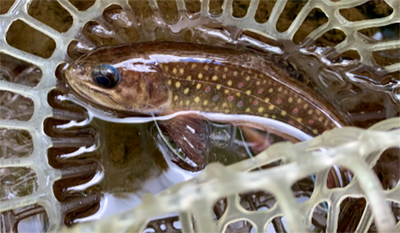
Striving for a Better Future on the Shenango
This storymap centers on the Shenango River, a beloved waterway for those who live, work, and play around it, to explain the relationship between climate change, the water cycle, and the watershed-level impacts that threaten nearby communities. The story also highlights different organizations and projects in Northwestern Pennsylvania working to address climate change in the Shenango River Watershed. You can use this storymap
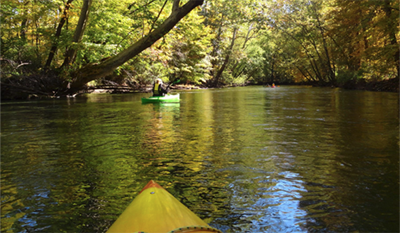
We Are Nature Podcast
This podcast series features stories of natural histories and livable futures directly from individuals and organizations on the frontlines of climate change adaptation and mitigation, conservation, and building just and joyous futures for all life. Use these podcast stories to learn and teach about locally relevant issues and actions, and to inspire hope in others.
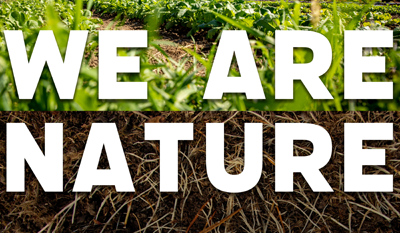
We Are Nature Videos
These videos supplement select We Are Nature podcast episodes, featuring several CRSP community partners on the frontlines of climate action through their work. Notice how solutions take different forms, from advocacy to regenerative farming to stream conservation and more. Use these videos to take a deeper look at several areas of work currently happening in Western Pennsylvania.
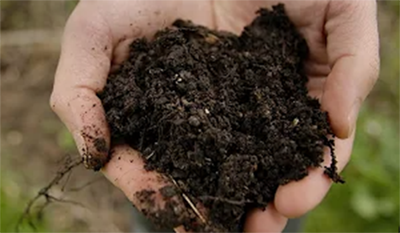
Climate Card Activity
Coming soon!
Take A Stand
Coming soon!
Contact a CRSP Team Member

Senior Program Manager, Climate and Rural Systems Partnership (CRSP)

Associate Curator, Anthropocene Studies
Co-PI, Climate and Rural Systems Partnership
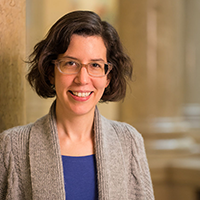
Director of Learning and Community
Co-PI, Climate and Rural Systems Partnership
The CRSP project is funded by the National Science Foundation. This material is based upon work supported by the National Science Foundation under Grant #1906774.
CRSP Blogs and News
What Does Climate Change Mean for Western PA Farmers?
Agriculture is many things when it comes to climate change: a source of heat trapping gases, a casualty of extreme…
Warmer Springs and Earlier Birds
by Bonnie McGill Male Red-winged Blackbird (Agelaius phoeniceus) by Jonathan Eckerson via Macaulay Library. Male Red-winged…
Climate Change Myth Busting at the Museum
by Dr. Bonnie McGill If you’ve visited the museum recently you may have noticed some new orange labels throughout the…
We Get Questions: Climate Change, Hope, and Action
by Patrick McShea “Tell me what gives you hope?” The student’s question during a high school environmental science class in…
More on Climate Change at the museum
CARNEGIE MUSEUM OF NATURAL HISTORY PRESENTS LIFE IN ONE CUBIC FOOT
Pittsburgh, September 28, 2023 — This fall and holiday season, Carnegie Museum of Natural…
Carnegie Museum of Natural History Awarded $225K Grant from Richard King Mellon Foundation to Lead Campaign Against Spread of Invasive Plant Species
Pittsburgh, Pennsylvania, July 11, 2023 — Thanks to a $225,000 grant from the…
Researchers Call for New Conservation Paradigm that Embraces Positive Contributions of Land Stewardship
In a new study published by the journal Nature Sustainability, researchers call for a…
Climate Change Threatens North American Wildflowers
Adverse Effects to Spring Ephemerals May Be Greater in North America than…
Carnegie Museum of Natural History Launches New “We Are Nature” Podcast Series, Exploring Natural Histories and Livable Futures
Series Introduces Listeners to Climate Action Conversations and Strategies in Southwestern Pennsylvania Featuring…
Scientists Call for New Research Studying the Combined Effects of Climate Change and Urbanization on Body Size Across Species
Rhacophorus dulitensis (jade tree frog). Photo by Dr. Jennifer Sheridan, Carnegie Museum of…
CUSP Exhibits on display at Pitt
Participants engage in an activity at CUSP, coordinated locally by Carnegie Museum…
A New Way to Study Climate Change
Students from Shady Side Academy Middle School studied our extensive fossil collection…
Songbirds and Climate Change
How are songbirds in western Pennsylvania adapting to climate change? Fairly well…
The Economics of Climate Change
by Barbara Klein Scientists agree that the list of species in danger…
Did you know?
Did you know that water temperature determines the sex of a sea…
Did you know that coral is expected to be the first casualty?
Did you know that coral is expected to be the first casualty…
Notice any differences?
Notice any differences between these two sets of botany sheets? These specimens…
Migrate or Die
By Dr. Nicole Heller Becoming Migrant was this year’s theme for the…
New Member of the Section of Herpetology
By Jennifer Sheridan The Section of Herpetology has welcomed a new curator—me!…
None Like It Hot
By Joylette Portlock July. Long known across the U.S. for fireworks, barbecues,…
Wet Weekend!
by Joylette Portlock I had the chance to visit Powdermill Nature Reserve…
Combating Climate Change with Plants
by Steve Tonsor It is easy for everyone to overlook plants as…
